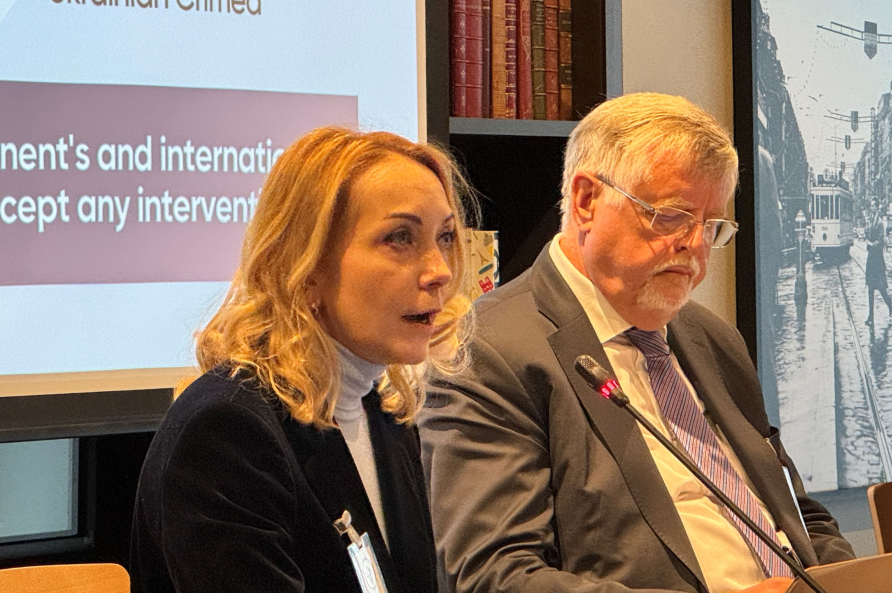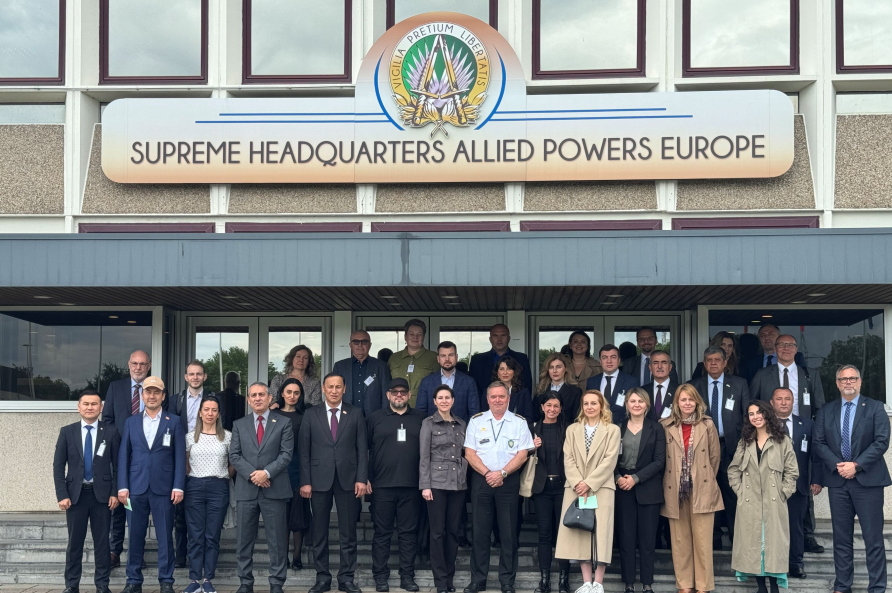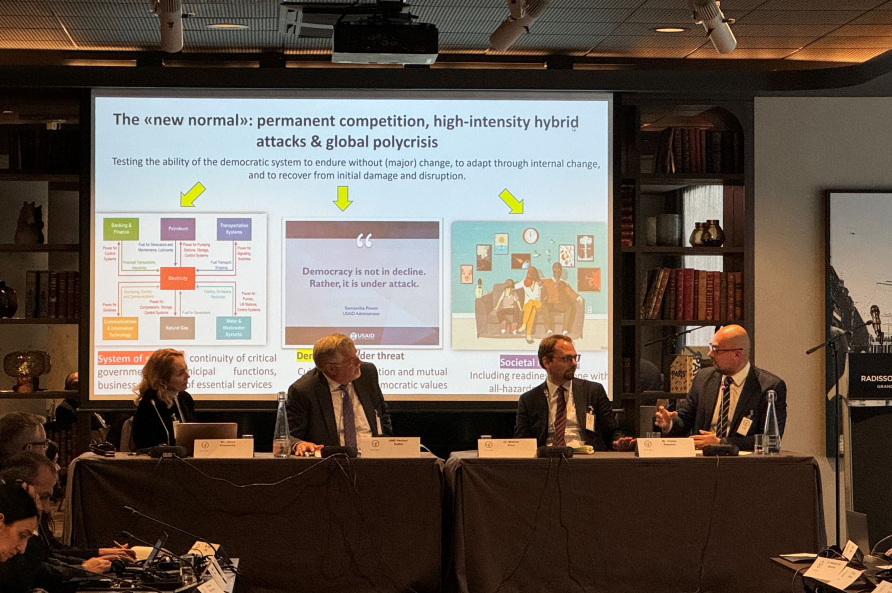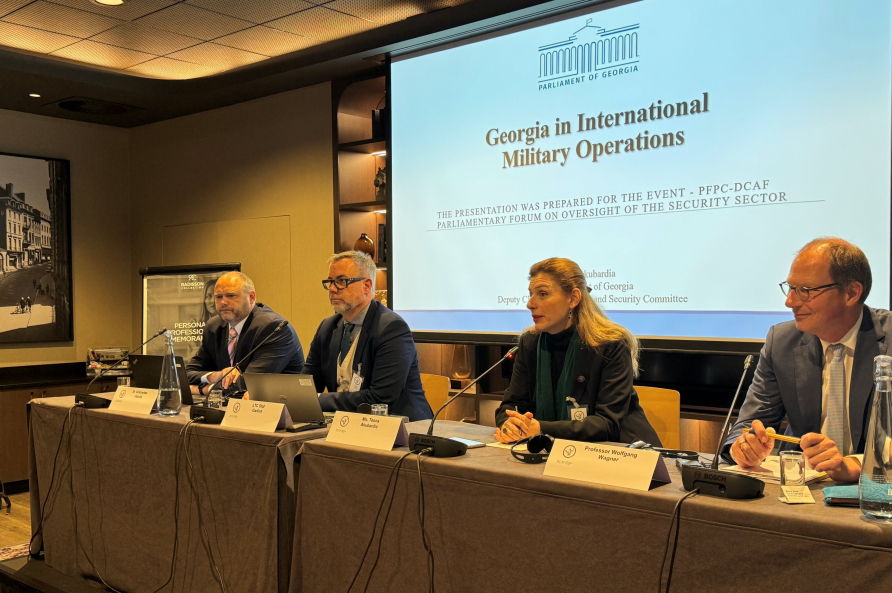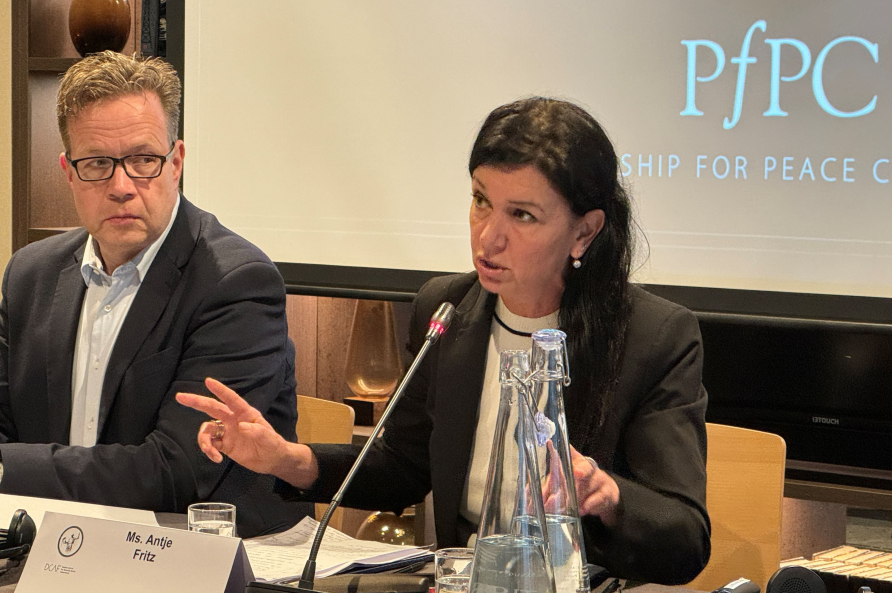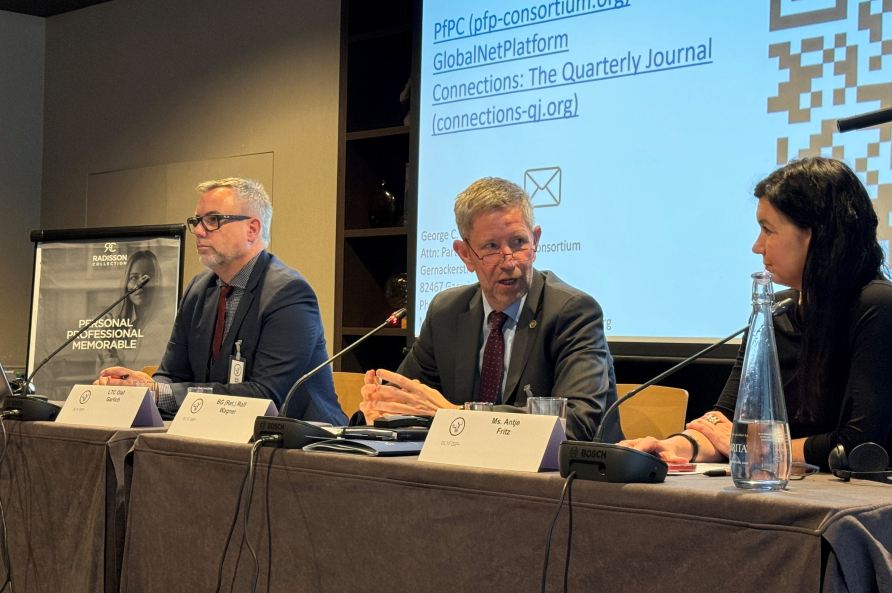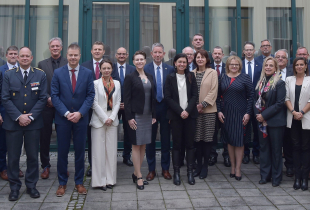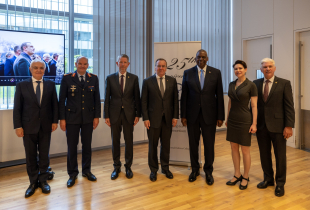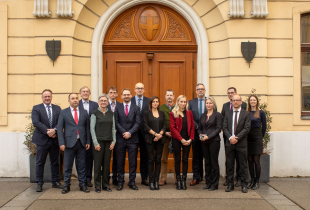
PfPC and DCAF host Parliamentarians for a Security Sector Governance and Oversight Roundtable
BRUSSELS, Belgium (May 17, 2024) – Parliamentarians, staff, and academics from across eastern Europe, South Caucuses, and Central Asia met May 13 – 17 in Brussels for the second time in nine months to discuss the role of security sector governance and parliamentary oversight. The three-day roundtable built upon the previous Partnership for Peace Consortium (PfPC) Parliamentarian workshop held in Berlin, Germany in September, 2023.
The event, organized by the Geneva Centre for Security Sector Governance (DCAF) as part of PfPC, aimed to enhance the process of security sector reform and good governance through cooperation in joint research, outreach, and expert training initiatives.
Framed within the Security Sector Reform working group, parliamentarians from Armenia, Georgia, Kyrgyzstan, Moldova, Tajikistan, and Ukraine joined subject-matter experts from various security organizations to discuss oversight of domestic security and defense, parliament’s relevance for defense and law enforcement reforms, and parliamentary engagement on matters related to current and emerging security threats.
Against a backdrop of contemporary challenges in the democracies of Eastern Europe and the Caucuses especially, the mandate for roundtable was clear.
“We have to focus on our democratic values, we have to focus on our freedom, human rights, peace and security, democracy, good governance, and the Rule of Law,” said retired Brig. Gen. Rolf Wagner, Chairman, Senior Advisory Council, PfPC, and Marshall Center German Deputy Director during his opening remarks.
As chair of the PfPC Security Sector Reform working group, DCAF launched the Parliamentary Forum on Security Sector Governance and Oversight intent on strengthening the capacities of parliaments to legislate and oversee their respective domestic security sectors as well as to promote norms and good practices for parliamentary security sector oversight through parliamentary exchange and dialogue.
The event proved to be an opportunity for parliamentarians to exchange lessons learned and insights with international security experts and peers from western European parliaments in a setting designed to inspire local efforts to strengthen the role of parliaments in security sector governance and oversight.
Ukrainian Member of Parliament Olena Khomenko, who also serves on the committee for National Security, Defense, and Intelligence, served as a panelist discussing actions and initiatives for responding to crises and building democratic resilience. Drawing from her own recent experience, she said the “unique phenomenon of Ukrainian resilience also lies in strengthening communities. The expansion of their autonomy and resources has allowed [Ukrainians] to effectively carry out local governance and rapidly respond to crises.”
Other topics discussed during the week included Sustainable Development Goal (SDG) 16 and its role in highlighting the security-development nexus and strong institutions adherence to good governance principles; the implications of Artificial Intelligence for security sector governance and oversight; parliamentary oversight and control over international military operations, countering disinformation and the role of parliament to address information manipulation; discussions on climate change as a driver of increased insecurity and conflict; and the role of parliament in overseeing the powers and competences of intelligence services. A highlight of the conference was a mid-week visit to Supreme Headquarters Allied Powers Europe (SHAPE) for insights on the Allied Command Operations.
Dr. Sebastian von Münchow, GCMC Professor of Regional Security Studies, concluded formal roundtable sessions highlighting parliamentary oversight on security and intelligence agencies as essential for democracies.
“States who either have the aspiration to join transatlantic institutions or seeking for partnership are usually asked to introduce parliamentary oversight mechanisms such as standing or ad hoc committees,” he said, emphasizing that parliaments are usually mandated to have a thorough look into allegations of misconduct and breaches of domestic or international law. "This shall serve to prevent abuse of sensitive instruments of statecraft in domestic and international arenas,” continued Dr. von Münchow.
DCAF’s Deputy Head of Operations for Europe and Central Asia, Antje Fritz and Lt. Col. Olaf Garlich, PfPC Deputy Executive Director, wrapped up the conference with a review of priority topics for prospective regional parliamentary dialogue and an evaluation of the roundtable sessions with contributions from attending parliamentarians.
Parliamentarians unanimously agreed on the value of the roundtable sessions and eagerness to continue the work in future meetings.
“It was a highly informative exchange of experiences,” said Khomenko. “Learning more about parliamentary oversight of international military operations and the powers and competencies of intelligence services, in particular from colleagues from NATO member states, was most valuable.”
DCAF and PfPC have plans for future conferences that will build upon lessons and best practices shared during the week. Dr. von Münchow could not overstate the importance of parliamentarians learning from each other on various aspects of oversight in relation to good, effective governance.
“Energy by parliamentarians into respective oversight additionally ensures balancing the rights between the executive and legislative organs of a functioning state,” he said.
